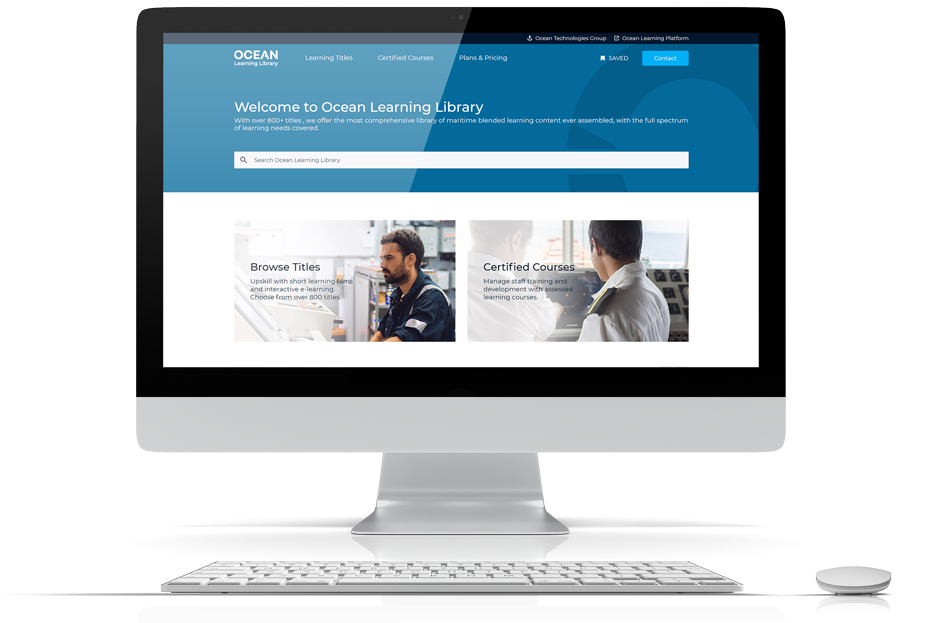Developing a Future-Ready Maritime Workforce
Developing a Future-Ready Maritime Workforce
The maritime industry’s most crucial asset isn’t its vast fleets or advanced tech; it’s its people.
As the sector edges toward a tech-driven future, the need for a workforce with the skills not just for today but also prepared for tomorrow’s challenges is more important than ever. This article explores how to prepare the maritime industry with a skilled, forward-thinking workforce.
Equipping the Maritime Industry for the Future
The maritime industry is navigating towards a future where technology leads the way, requiring a workforce skilled not only in traditional maritime practices but also in modern technological advancements. Training has taken full advantage of digitalisation, evolving beyond the classroom to include sophisticated simulators and virtual reality environments that offering realistic experiences. Remote learning has also come a long way from watching VHS tapes onboard to being able to access a huge range of blended training, on-demand, on networks, online, and on personal devices. Having easy access to such a wide array of paths for learning is crucial in ensuring seafarers are equipped to handle new technology and are familiar with the processes and standards that will keep them safe and compliant onboard today’s advanced vessels.
Machine learning and artificial Intelligence are playing an increased role in maritime operations, with solutions promising to transform maintenance and navigation practices. With enough quality inputs, AI can aid in predictive maintenance, identifying potential issues before they escalate, thereby enhancing safety and reducing operational costs. In navigation, AI can support planning and optimisation of voyages by analysing variables like weather conditions and maritime traffic, leading to safer, more efficient journeys.
This shift towards technology-rich training and operations signifies a pivotal moment in the maritime industry, emphasising the need for a future-ready workforce equipped to embrace and leverage technological innovations for improved safety, efficiency, and sustainability. [1], [2]
The wave of technological innovation is not just reshaping the industry; it is also redefining necessary skill sets. From the headline-grabbing topics of artificial intelligence, big data, and blockchain to increasing digitalisation of systems onboard and ashore, new technologies are integral to modern maritime operations, improving decision-making, safety, and operational efficiency. Robotics and drones are increasingly used for inspection and maintenance, highlighting the growing need for a workforce proficient in technology. [3]

Developing Sustainable Practices in Maritime Training
The maritime industry plays a crucial role in the global economy, primarily by moving raw materials and goods through intricate logistics chains, from where they are extracted or produced to where they are needed. The challenge of maintaining an effective and sustainable maritime workforce to crew and support the vessels moving the world’s goods is equally as complex. Firstly, the industry’s rapid technological advancements demand a broader skill set from seafarers, who now need to be proficient in operating vessels with new equipment onboard and a growing variety and mix of fuels, moving from HFO to ULSFO, and beyond to LNG, and potentially ammonia, powered vessels. This diversity in vessel propulsion technologies requires seafarers to possess broader knowledge than ever before.
Secondly, the industry faces a significant challenge with attrition, leading to a shortage of skilled officers. [4] This shortage is exacerbated when specific qualifications are required, such as for operating LNG-powered vessels, which are less common than traditional HFO-fuelled ships. This scarcity of qualified crew members can drive up the cost of hiring or necessitate investment in upskilling existing personnel. As new technologies emerge, the initial lack of broadly trained individuals further strains the capacity for training and development, highlighting the need for a strategic approach to workforce education and retention in the maritime sector.
To help address these challenges, maritime training is evolving. With one of the immediate priorities being addressing the skills gaps in “traditional” maritime competencies, e-learning offers fast and scalable routes to ensuring that the workforce is up to speed with essential navigational, operational, as well as company-specific knowledge.
Against this backdrop of strengthening core skills, there’s now also a significant emphasis on environmental responsibility over and above regulation. Training programs are increasingly incorporating lessons on sustainable practices and green technologies, reflecting the industry’s commitment to reducing its environmental impact. This includes educating seafarers about the importance of reducing energy as well as on alternative fuels.
The flexibility and availability of training helps to prepare maritime professionals not just to do their jobs well but also to make positive contributions to the marine environment. The goal is to ensure that the maritime workforce is equipped to adopt eco-friendly practices in their daily operations, helping to reduce pollution and optimise energy use. This approach aligns with global efforts to protect our oceans and ensures that the maritime industry can continue to fulfil its vital role in the economy while being mindful of its environmental footprint. [5]
Upskilling doesn’t stop with ensuring competency to meet current needs; it extends to planning for future succession, with companies combining digital crew management and learning management tools to take a long-term view – looking at what skills will be needed to meet future needs and building career development plans to make sure that need I met on time. This strategic focus on career progression is critical for building a resilient maritime workforce capable of meeting both present and future challenges.
Building Soft Skills and Leadership in Maritime
To be an effective leader on board, as onshore, is more than simply having the technical know-how of how to do a job. Soft skills like effective communication, teamwork, and conflict resolution are just as important. These skills help maritime professionals lead diverse teams, work across different cultures, and perform as an effective team in high-pressure situations.
Recent research shows the significance of soft skills in enhancing employee performance. A study involving Greek shipping companies revealed that adaptability, communication, problem-solving, and teamwork directly contribute to better contextual performance among employees. Interestingly, the research also established a link between problem-solving abilities and how much someone earns, highlighting the tangible benefits of soft skills in the maritime workplace. [6]
Emphasising these soft skills can unite workforces, leading them to be more effective, and able to handle challenges together. This approach makes sure that maritime operations are not only good at what they do technically but also work well together, which is crucial for success in this fast-moving industry.
Adapting to Change with a Future-Ready Maritime Workforce
Building a workforce that’s ready for the maritime industry’s future means focusing on adaptability and resilience. This is where continuous learning comes into play, significantly enhanced by our e-learning and competency management systems. These digital solutions provide maritime professionals with the flexibility and accessibility they need for ongoing training, ensuring they remain at the cutting edge of industry standards and innovations.
At Ocean Technologies Group, we’re leading this shift towards a more dynamic educational model. Our platforms are specifically designed to equip maritime professionals with the necessary tools to stay ahead, promoting the highest levels of safety, compliance, and operational excellence. By developing an environment of continuous improvement and learning, we’re not just preparing maritime professionals for the challenges of today but also equipping them with the knowledge and skills to navigate future developments and challenges in the maritime world.
If you would like to know more about how can help you, please contact us now!
The maritime industry’s best e-learning content
Unparalleled breadth and quality of content. We offer the most comprehensive library of maritime blended learning content ever assembled.

